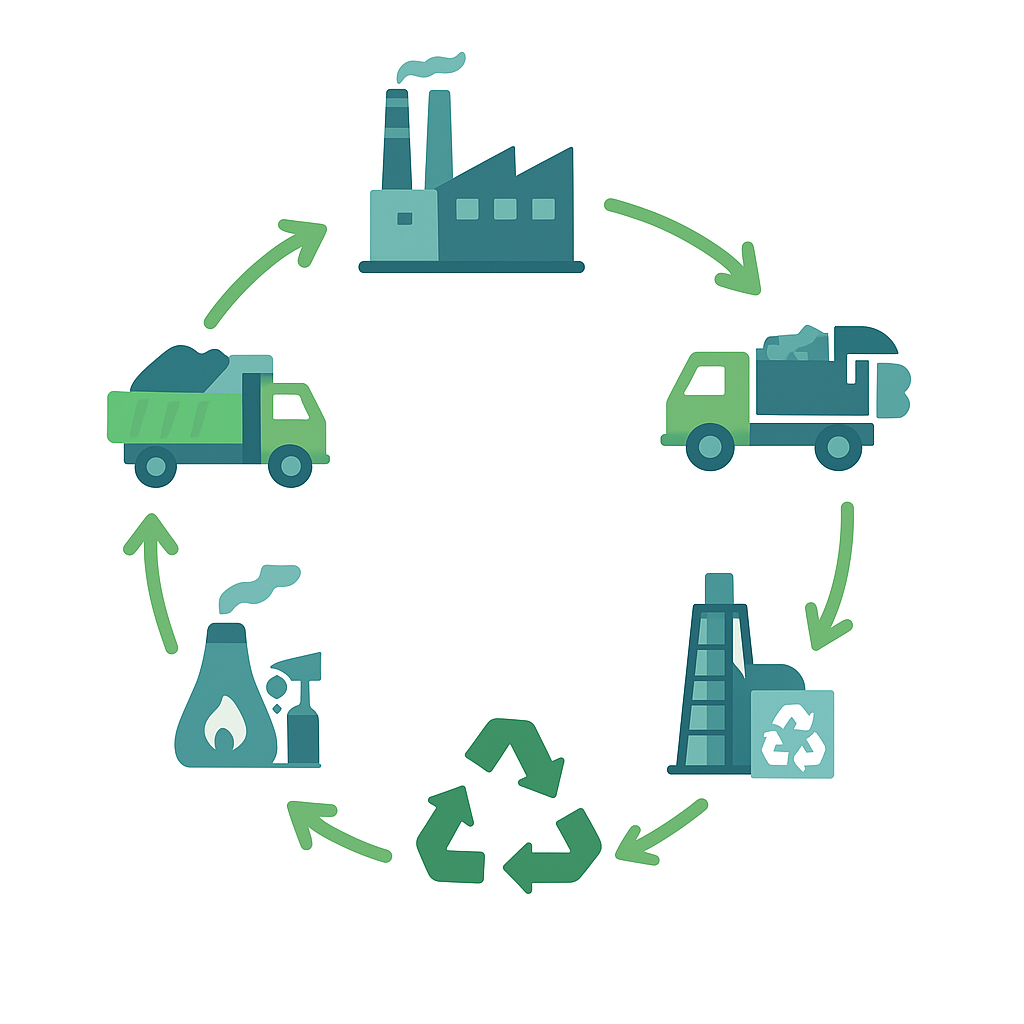As the world becomes increasingly conscious of the impact that human activities have on the environment, the push for operational sustainability is increasing. More and more organizations across industries are seeking ways to minimize their carbon footprint.
Today, waste management is one of the key areas that companies can prioritize to meet sustainability goals, particularly hazardous waste management and disposal – and numerous sustainable options, including fuel blending, exist.
Hazardous wastes, specifically solvents, are difficult to dispose of. Finding an efficient and safe disposal strategy can be hard enough; finding an efficient, safe, and sustainable disposal option can feel impossible. Often, traditional disposal approaches may be safe, but may not be the most sustainable. With limited options, it can be difficult and costly for hazardous waste generators to find a system that checks all the boxes for a generator’s specific needs.





